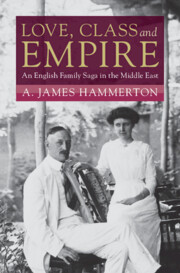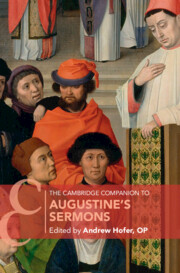Refine search
Actions for selected content:
245 results
‘Only God, my dear’: being loved for oneself and creation from nothing
-
- Journal:
- Religious Studies , First View
- Published online by Cambridge University Press:
- 16 September 2025, pp. 1-17
-
- Article
-
- You have access
- Open access
- HTML
- Export citation
“Public Hospitals in Critical Condition”: Death and Love as Embodied Care and Political Mobilization
-
- Journal:
- Business Ethics Quarterly , First View
- Published online by Cambridge University Press:
- 15 September 2025, pp. 1-31
-
- Article
- Export citation
Chapter 5 - Forgivingness
- from Part II - Virtues of Direct Caring
-
- Book:
- Attention to Virtues
- Published online:
- 25 July 2025
- Print publication:
- 14 August 2025, pp 85-119
-
- Chapter
- Export citation
Chapter 12 - Practical Wisdom and the Rationality of Emotions
- from Conclusion
-
- Book:
- Attention to Virtues
- Published online:
- 25 July 2025
- Print publication:
- 14 August 2025, pp 299-318
-
- Chapter
- Export citation
Chapter 5 - Love Your Neighbor (Leviticus 17–22)
-
- Book:
- The Theology of the Book of Leviticus
- Published online:
- 18 July 2025
- Print publication:
- 07 August 2025, pp 157-202
-
- Chapter
- Export citation
Chapter 9 - Human Society and the Cosmic City
-
-
- Book:
- The Cambridge Companion to Marcus Aurelius' <i>Meditations</i>
- Published online:
- 02 July 2025
- Print publication:
- 17 July 2025, pp 172-196
-
- Chapter
- Export citation

Love, Class and Empire
- An English Family Saga in the Middle East
-
- Published online:
- 10 July 2025
- Print publication:
- 04 September 2025
Chapter 7 - The Philosophy of Desire
-
- Book:
- Ovid and Plato
- Published online:
- 19 June 2025
- Print publication:
- 03 July 2025, pp 114-140
-
- Chapter
- Export citation
2 - The Goal of Preaching
- from Part I - Augustine’s Pastoral Task of Preaching Sermons
-
-
- Book:
- The Cambridge Companion to Augustine's Sermons
- Published online:
- 26 May 2025
- Print publication:
- 12 June 2025, pp 44-59
-
- Chapter
- Export citation
14 - Preaching on Love of Neighbor
- from Part III - Augustine’s Preaching Themes
-
-
- Book:
- The Cambridge Companion to Augustine's Sermons
- Published online:
- 26 May 2025
- Print publication:
- 12 June 2025, pp 263-280
-
- Chapter
- Export citation
11 - Guilt, Freedom and Reconciliation
- from Introduction to Part IV: Towards Abolition
-
- Book:
- Rethinking Criminal Justice
- Published online:
- 17 May 2025
- Print publication:
- 05 June 2025, pp 244-268
-
- Chapter
- Export citation
7 - Two Accounts of Guilt in Freud
- from Introduction to Part III: Synthesis and Atonement
-
- Book:
- Rethinking Criminal Justice
- Published online:
- 17 May 2025
- Print publication:
- 05 June 2025, pp 149-167
-
- Chapter
- Export citation
1 - Criminal Justice and the Metaphysical Animal
-
- Book:
- Rethinking Criminal Justice
- Published online:
- 17 May 2025
- Print publication:
- 05 June 2025, pp 1-24
-
- Chapter
- Export citation

The Cambridge Companion to Augustine's Sermons
-
- Published online:
- 26 May 2025
- Print publication:
- 12 June 2025
Chapter 24 - Religion
- from Part II - Intellectual, Cultural, and Political Contexts
-
-
- Book:
- Percy Shelley in Context
- Published online:
- 17 April 2025
- Print publication:
- 24 April 2025, pp 180-186
-
- Chapter
- Export citation
Future love: age(ing), gender and care in age-dissimilar couples’ imagined futures
-
- Journal:
- Ageing & Society , First View
- Published online by Cambridge University Press:
- 04 April 2025, pp. 1-21
-
- Article
- Export citation
1 - Augustinianisms and Liberalisms
-
- Book:
- Political Theology and the Conflicts of Democracy
- Published online:
- 21 March 2025
- Print publication:
- 03 April 2025, pp 35-94
-
- Chapter
- Export citation
5 - Loving in Conflict
-
- Book:
- Political Theology and the Conflicts of Democracy
- Published online:
- 21 March 2025
- Print publication:
- 03 April 2025, pp 280-326
-
- Chapter
- Export citation
A Case for Caregiver Testimony about the Cognitively Disabled
-
- Journal:
- Episteme , First View
- Published online by Cambridge University Press:
- 24 March 2025, pp. 1-15
-
- Article
-
- You have access
- Open access
- HTML
- Export citation
Screening Love: Relational Practices in Japanese TV Dramas Produced During the COVID-19 Pandemic
-
- Journal:
- Asia-Pacific Journal / Volume 20 / Issue 14 / July 2022
- Published online by Cambridge University Press:
- 14 March 2025, e3
-
- Article
-
- You have access
- Open access
- Export citation
